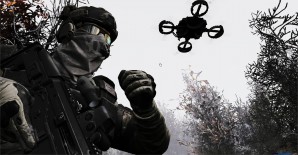
The Art of War is an ancient Chinese military treatise that is attributed to Sun Tzu a high ranking military general and strategist during the late Spring and Autumn period.
Composed of 13 chapters, each one written around 500 BC on vertical bamboo strips about the size of a chop stick, each stick contains 15-20 Chinese characters of which is devoted to one aspect of warfare, it is said to be the definitive work on military strategies and tactics of its time, and is still read for its military insights.
The Art of War is one of the oldest and most successful books on military strategy in the entire world. Some say it holds the key to war and peace.
Basically if you listen to Sun Tzu and follow the principles as outlined in the Art of War – you will be victorious, ignore his advice and you fight in darkness.
The Art of War has been the most famous and influential of China’s Seven Military Classics. For the last two thousand years the it remained the most important military treatise in Asia, where even the common people knew it by name.
It has had an influence on Eastern military thinking, business, tactics, and beyond. Toay it is taught as part of the core curriculum at may war colleges, including West Point, the Army war college and the Air Force Academy .
Listen if you study the Art of war and understand its principle you can determine the outcomes of wars and future conflicts.
The Art of War has three key principles:
1) Know your enemy and know yourself and in 100 battles you will never be in peril.
2) To win 100 battles is not the height of skill. To subdue your enemy without fighting is.
3) Avoid what is strong, attack that which is weak.
Sun Tzu emphasized the importance of positioning in military strategy, and that the decision to position an army must be based on both objective conditions in the physical environment and the subjective beliefs of other, competitive actors in that environment.
He thought that strategy was not planning in the sense of working through an established list, but rather that it requires quick and appropriate responses to changing conditions. Planning works in a controlled environment, but in a changing environment, competing plans collide, creating unexpected situations.
See related video: Sun Tzu documentary https://www.youtube.com/watch?v=erZ2YidTZp4

